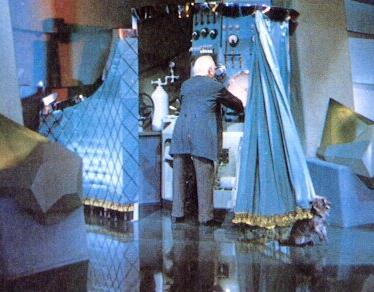Discovery results—as often as not—from our ability to combine the familiar with the unexpected into a new way of doing things. It’s as true about the challenges we face at work, as it is about figuring out what kind of work we should be doing in the first place.
If you want to start seeing your work differently, there is no better way than to break down your preconceptions about yourself as a “worker,” and put everything back together with the leavening agent of new information.
Shake it up. See new possibilities in familiar territory. Recognize how ideas that seem to have nothing in common (like “producing social benefits” and “profit-making”) can be brought together in an exercise of the imagination to provide you with work that is as productive for you as it is for others.
But what if we’re so ensconced in our little worlds that unexpected combinations—the raw materials for insight—can rarely, if ever happen?
That many of us choose to live in a limited world when we have an unlimited world at our fingertips, at first seems to make little sense. Our smart phones give us near-instant access to almost everything. But instead of using that outlet as an opportunity to learn new things and to grow, too often we use the most powerful tool we have ever held in our hands to do little more than validate what we already know.
Much of it is fear—a key by-product of what Alvin Toffler called “future shock.”
Barraged by more-information-than-ever that risks confusing our most cherished beliefs, there is a strong pull to retreat into our comfort zones in order to (as we see it) feel more in control and function more effectively.
But how effective are we (either for ourselves or for others) when everything we think about and do is dictated by our preconceptions about what is “real” and “true,” and what is not?
Making the glut of available information manageable doesn’t require closing ourselves off from conflicting information. To do so confines us in a too-small world, because it’s precisely this kind of information that contributes the most to insight and change, to personal growth and tolerance.
Jonathan Swift, the great English author of Gulliver’s Travels, famously said: “He was a bold man that first ate an oyster.”
It’s not easy to be bold and try something new. It certainly required an altered state for me to dive into that first sushi platter 30 years ago with my friend Mitch, eager to give me a taste of what he was learning from his Japanese clients. But once you start opening doors, your days huddling around “the old and settled” seem limiting and lifeless. It’s about stepping out and being fully human.
You can get a powerful glimpse of the thrust to evolve and fling open the doors to possibility in schools committed to innovation, like the Institute of Design (or “d-school”) at Stanford and the MIT Media Lab. These learning centers get students out of their silos of specialization by making all courses interdisciplinary, so that unexpected combinations start taking form. The goal at such places isn’t getting good grades or parroting the “right” answers, but risking the “stupid” question, learning from your mistakes, and sometimes entering a new frontier.
Of course, reaching boldly through reluctance or fear and towards possibility can have benefits everywhere.
If you think of your work in the same old ways, you will have the same old work. When you believe only what you’re accustomed to believe and tune out the rest, how could it be otherwise? You’re living in an echo chamber.
You don’t have to be like everyone else, stuck in conventional ways of thinking about your work.

It’s not just about finding “a job,” but finding “the right job for who you are.”
It’s not just about making money, but getting a better mix of rewards from your work—including a sense of purpose.
It’s not just about products and services the market already demands, but also about creating new markets.
It’s not just about someone else giving you a job; sometimes it’s about creating the right job for yourself.
If you’re not open to new (and better) ways of thinking about your work, you will never be able—step by step—to breathe life into them.
Open that door.




